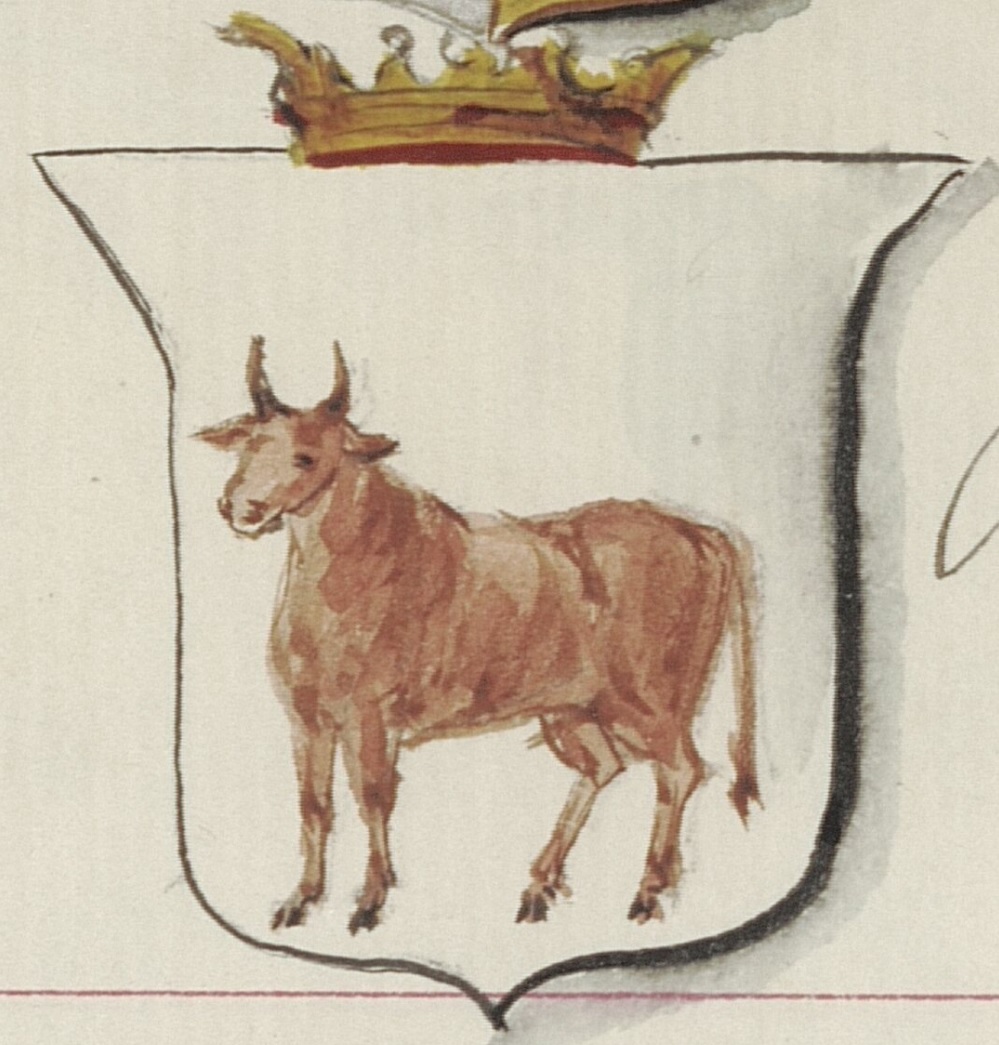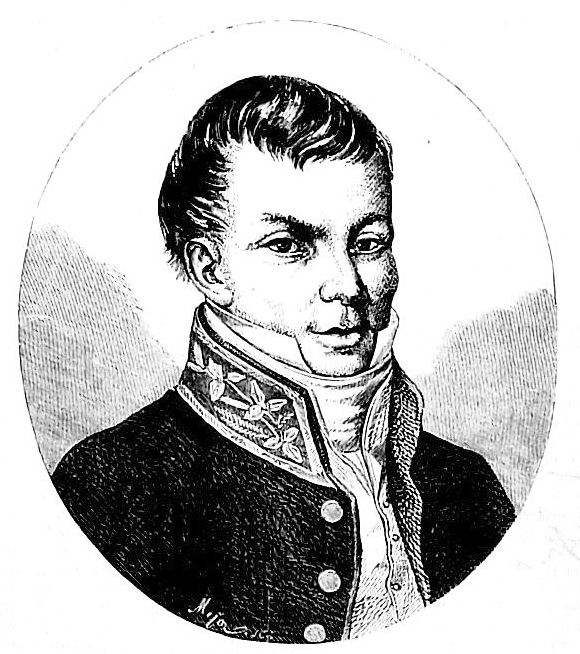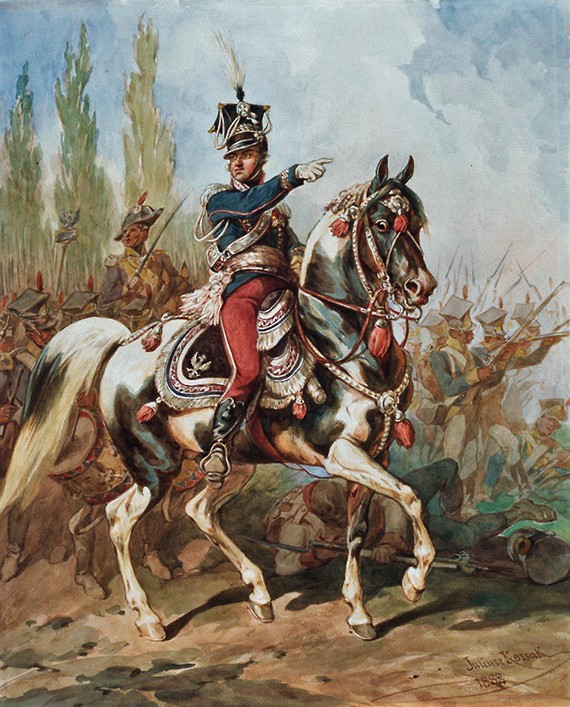|
Polish National Songs
This is a list of Polish national and patriotic songs. ; '' Bogurodzica'' (Mother of God) : A religious hymn to the Virgin Mary dating back to between 10th and 13th centuries. It was a ''de facto'' national anthem of medieval Poland, sung at royal coronations and on battlefields, including the Battle of Grunwald in 1410 and the Battle of Varna in 1444. ; ''Gaude Mater Polonia'' (Rejoice, Mother Poland) : A hymn written in the 13th century by Wincenty of Kielcza. It was penned in Medieval Latin to the melody of a Gregorian chant, ''O salutaris Hostia''. The hymn celebrates the canonization of Saint Stanislaus of Szczepanów, bishop of Kraków and patron saint of Poland. In the Middle Ages, it was chanted on special occasions and after victorious battles. Today, it is performed at university ceremonies. ; '' Daj nam Boże doczekać tej pory, by do ataku nachylić propory'' (Let Us, O God, Live to Lower Our Pennons for Attack) : Soldiers' song which originated in Prince Józef Ponia ... [...More Info...] [...Related Items...] OR: [Wikipedia] [Google] [Baidu] |
Bogurodzica Rekopis1407
] Bogurodzica (, calque of the Greek term ''Theotokos''), in English known as the Mother of God, is a medieval Roman Catholic hymn composed sometime between the 10th and 13th centuries in Poland. It is believed to be the oldest religious hymn or patriotic anthem in the Polish language, which was traditionally sung in Old Polish with the Greek phrase ''Kyrie eleison'' – "Lord, have mercy". While its origin is not entirely clear, several scholars agree that Saint Adalbert of Prague is the likely author. Polish knights chanted Bogurodzica prior to their engagement at the Battle of Grunwald and it also accompanied the coronation ceremonies of the first Jagiellonian kings. History ] It was recorded in writing at the beginning of the 15th century. Two records preserved till today date back to that time: # the Kcynia record including two initial stanzas together with musical notation; # the Kraków record covering thirteen stanzas without notes. Other records date back to the second ... [...More Info...] [...Related Items...] OR: [Wikipedia] [Google] [Baidu] |
Stanisław August Poniatowski
Stanisław II August (born Stanisław Antoni Poniatowski; 17 January 1732 – 12 February 1798), known also by his regnal Latin name Stanislaus II Augustus, was King of Poland and Grand Duke of Lithuania from 1764 to 1795, and the last monarch of the Polish–Lithuanian Commonwealth. Born into wealthy Polish aristocracy, Poniatowski arrived as a diplomat at the Russian imperial court in Saint Petersburg in 1755 at the age of 22 and became intimately involved with the future empress Catherine the Great. With her connivance, he was elected King of Poland by the Polish Diet in September 1764 following the death of Augustus III. Contrary to expectations, Poniatowski attempted to reform and strengthen the large but ailing Commonwealth. His efforts were met with external opposition from neighbouring Prussia, Russia and Austria, all committed to keeping the Commonwealth weak. From within he was opposed by conservative interests, which saw the reforms as a threat to their traditional l ... [...More Info...] [...Related Items...] OR: [Wikipedia] [Google] [Baidu] |
Casimir Delavigne
Jean-François Casimir Delavigne (4 April 179311 December 1843) was a French poet and dramatist. Life and career Delavigne was born at Le Havre, but was sent to Paris to be educated at the Lycée Napoleon. He read extensively. When, on 20 March 1811 the empress Marie Louise gave birth to a son, named in his cradle as king of Rome, the event was celebrated by Delavigne in a ''Dithyrambe sur la naissance du roi de Rome'', which obtained him a sinecure in the revenue office. Citations: * Sainte-Beuve, ''Portraits littéraires'', vol. v. * A. Favrot, ''Étude sur Casimir Delavigne'' (1894) * F. Vuacheux, ''Casimir Delavigne'' (1893) About this time he competed twice for an academy prize, but without success. Inspired by the Battle of Waterloo in 1815, he wrote two impassioned poems, the first entitled ''Waterloo'', the second, ''Devastation du muse'', both written in the heat of patriotic enthusiasm, and teeming with popular political allusions. A third, less successful poem, ''Sur l ... [...More Info...] [...Related Items...] OR: [Wikipedia] [Google] [Baidu] |
Warszawianka (1831)
"Warszawianka 1831 roku", "La Varsovienne" ("The Varsovian 1831") is a Polish patriotic song written by Casimir François Delavigne with music by Karol Kurpiński. History The song was written in support of the November Uprising of 1830–1831. The French poet Casimir Delavigne was fascinated and inspired by the news of the uprising making its way to Paris and wrote the words, which were translated into Polish by the historian, journalist, and poet (great-uncle of novelist Henryk Sienkiewicz). It contains several stylistic allusions to "La Marseillaise" in the lyrics e.g. ''Aux armes, citoyens'' (in "La Varsovienne": ''Polonais, à la baïonnette''). The song was performed for the first time on 5 April 1831 at the National Theatre in Warsaw and immediately started to enjoy great popularity. The song is sometimes confused with a later Polish revolutionary song of the same name (often referred to in Polish as "Warszawianka 1905 roku" or ‘the Varsovienne of 1905’, sometimes ... [...More Info...] [...Related Items...] OR: [Wikipedia] [Google] [Baidu] |
Congress Poland
Congress Poland, Congress Kingdom of Poland, or Russian Poland, formally known as the Kingdom of Poland, was a polity created in 1815 by the Congress of Vienna as a semi-autonomous Polish state, a successor to Napoleon's Duchy of Warsaw. It was established when the French ceded a part of Polish territory to the Russian Empire following France's defeat in the Napoleonic Wars. In 1915, during World War I, it was replaced by the German-controlled nominal Regency Kingdom until Poland regained independence in 1918. Following the partitions of Poland at the end of the 18th century, Poland ceased to exist as an independent nation for 123 years. The territory, with its native population, was split between the Habsburg monarchy, the Kingdom of Prussia, and the Russian Empire. After 1804, an equivalent to Congress Poland within the Austrian Empire was the Kingdom of Galicia and Lodomeria, also commonly referred to as "Austrian Poland". The area incorporated into Prussia and subse ... [...More Info...] [...Related Items...] OR: [Wikipedia] [Google] [Baidu] |
Alojzy Feliński
Alojzy Feliński (1771 – 1820) was a Polish writer. Life Feliński was born in Łuck. In his childhood he met Tadeusz Czacki. He was educated by the Piarists in Dąbrownica, later in Włodzimierz Wołyński. In 1778 he settled in Lublin, where he became a close companion of Kajetan Koźmian. Having resigned from the Bar together with Tadeusz Czacki, in 1779 he entered Parliament in Warsaw, where he became acquainted with many contemporary writers from Jacek Małachowski’s circle of friends. During the Kościuszko Insurrection, Feliński was Tadeusz Kościuszko’s secretary for French correspondence as well as the law and order commissar in Wołyń. After the defeat of the Insurrection he stayed at the Tarnowskis’ in Dzików, in 1795 he returned to Wołyń to manage his estate. In 1809 the author became a member of the ''Society of the Friends of Science''. In 1815 he went to live in Warsaw and joined the circle of classicists. In 1818 he moved to Krzemieniec, where ... [...More Info...] [...Related Items...] OR: [Wikipedia] [Google] [Baidu] |
National Anthem
A national anthem is a patriotic musical composition symbolizing and evoking eulogies of the history and traditions of a country or nation. The majority of national anthems are marches or hymns in style. American, Central Asian, and European nations tend towards more ornate and operatic pieces, while those in the Middle East, Oceania, Africa, and the Caribbean use a more simplistic fanfare. Some countries that are devolved into multiple constituent states have their own official musical compositions for them (such as with the United Kingdom, Russia, and the former Soviet Union); their constituencies' songs are sometimes referred to as national anthems even though they are not sovereign states. History In the early modern period, some European monarchies adopted royal anthems. Some of these anthems have survived into current use. "God Save the King/Queen", first performed in 1619, remains the royal anthem of the United Kingdom and the Commonwealth realms. , adopted as th ... [...More Info...] [...Related Items...] OR: [Wikipedia] [Google] [Baidu] |
Napoleon I Of France
Napoleon Bonaparte ; it, Napoleone Bonaparte, ; co, Napulione Buonaparte. (born Napoleone Buonaparte; 15 August 1769 – 5 May 1821), later known by his regnal name Napoleon I, was a French military commander and political leader who rose to prominence during the French Revolution and led successful campaigns during the Revolutionary Wars. He was the ''de facto'' leader of the French Republic as First Consul from 1799 to 1804, then Emperor of the French from 1804 until 1814 and again in 1815. Napoleon's political and cultural legacy endures to this day, as a highly celebrated and controversial leader. He initiated many liberal reforms that have persisted in society, and is considered one of the greatest military commanders in history. His wars and campaigns are studied by militaries all over the world. Between three and six million civilians and soldiers perished in what became known as the Napoleonic Wars. Napoleon was born on the island of Corsica, not long afte ... [...More Info...] [...Related Items...] OR: [Wikipedia] [Google] [Baidu] |
Italy
Italy ( it, Italia ), officially the Italian Republic, ) or the Republic of Italy, is a country in Southern Europe. It is located in the middle of the Mediterranean Sea, and its territory largely coincides with the homonymous geographical region. Italy is also considered part of Western Europe, and shares land borders with France, Switzerland, Austria, Slovenia and the enclaved microstates of Vatican City and San Marino. It has a territorial exclave in Switzerland, Campione. Italy covers an area of , with a population of over 60 million. It is the third-most populous member state of the European Union, the sixth-most populous country in Europe, and the tenth-largest country in the continent by land area. Italy's capital and largest city is Rome. Italy was the native place of many civilizations such as the Italic peoples and the Etruscans, while due to its central geographic location in Southern Europe and the Mediterranean, the country has also historically been home ... [...More Info...] [...Related Items...] OR: [Wikipedia] [Google] [Baidu] |
Polish Legions (Napoleonic Period)
The Polish Legions ( pl, Legiony Polskie we Włoszech; also known as the Dąbrowski Legions) in the Napoleon I of France, Napoleonic period, were several Polish military units that served with the Grande Armée, French Army, mainly from 1797 to 1803, although some units continued to serve until 1815. After the Third Partition of Poland in 1795, many Poles believed that Revolutionary France and her allies would come to Poland's aid. France's enemies included Poland's partitioners, Prussia, Austria and Imperial Russia, Russia. Many Polish soldiers, officers, and volunteers therefore emigration, emigrated, especially to the parts of Italy under French rule or serving as client states or sister republics to France (leading to the expression, "the Polish Legions in Italy") and to France itself, where they joined forces with the local military. The number of Polish recruits soon reached many thousands. With support from Napoleon Bonaparte, Polish military units were formed, bearing ... [...More Info...] [...Related Items...] OR: [Wikipedia] [Google] [Baidu] |
Jan Henryk Dąbrowski
Jan Henryk Dąbrowski (; also known as Johann Heinrich Dąbrowski (Dombrowski) in German and Jean Henri Dombrowski in French; 2 August 1755 – 6 June 1818) was a Polish general and statesman, widely respected after his death for his patriotic attitude, and described as a national hero who spent his whole life restoring the legacy of Poland. Dąbrowski initially served in the Saxon Army and joined the Polish–Lithuanian Commonwealth Army in 1792, shortly before the Second Partition of Poland. He was promoted to the rank of general in the Kościuszko Uprising of 1794. After the final Third Partition of Poland, which ended the existence of Poland as an independent country, he became actively involved in promoting the cause of Polish independence abroad. He was the founder of the Polish Legions in Italy serving under Napoleon from 1795, and as a general in Italian and French service he contributed to the brief restoration of the Polish state during the Greater Poland Upri ... [...More Info...] [...Related Items...] OR: [Wikipedia] [Google] [Baidu] |






